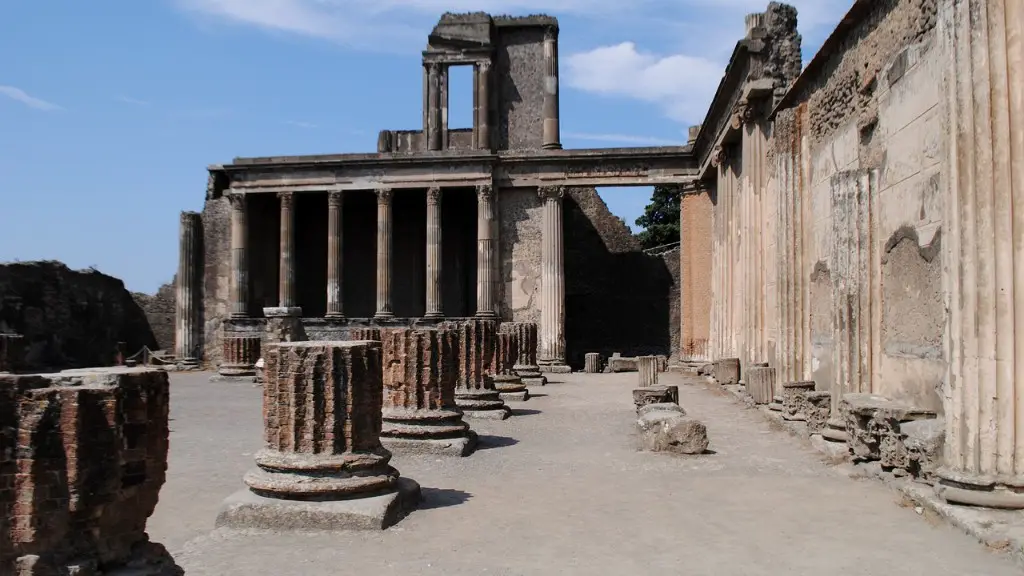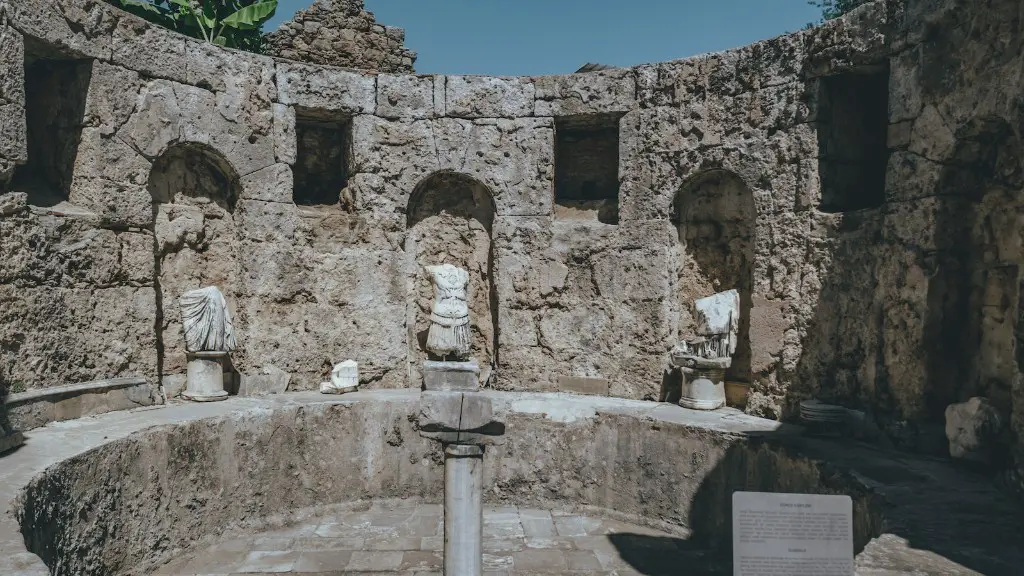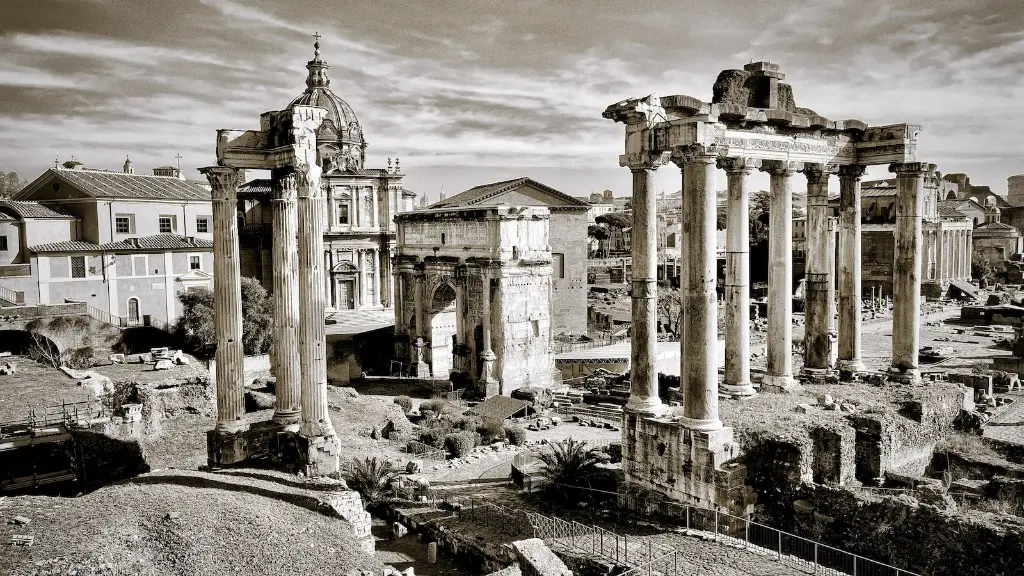The senate in Ancient Rome was a highly influential decision-making body in the Roman Republic until the late Roman Empire. Composed of 300 members, it was the ultimate legislative, executive and judicial authority during the Republic. Its members were hand-picked by the Roman consuls, who were elected by the citizens. Its membership included senators representing aristocratic families and their estates, leading patrician families and the wealthiest citizens.
The importance of the senate in Ancient Rome can be traced back to its role in regulating the government and the power it held to influence political decisions. It was the highest decision-making body of the Republic and was responsible for policy implementation and the laws. The senate was also responsible for electing new magistrates and vetting existing magistrates to ensure their loyalty to Rome. It also played a decisive role in foreign policy, as it had the final say in whether to declare war or sign treaties with other nations.
The senate was also the ultimate cultural authority in Ancient Rome. Its members enjoyed great respect and influence. They were the arbiters of fashion, entertainment and public ceremonies, such as festivals and gladiatorial games. Such a powerful influence in society gave members of the senate substantial personal wealth and influence in the politics of the time.
The church, too, was subject to the control of the senate. As Christianity began to spread in Rome, the senate was the ultimate authority in deciding what Christianity would look like in the Roman Empire. They gave Christianity the seal of approval, giving it the form we know it as today. This was a crucial example of the senate’s power in this time period, as Christians now make up a majority in both Italy and the world.
The senate was just as influential in economics as it was in politics and culture. The senate had the power to pass laws relating to minting coins and regulating trade. It also had a huge influence over how Rome’s territories were managed. This enabled it to build immense wealth and the power of the state over its citizens.
The importance of the senate in Ancient Rome was undeniable. Its ability to influence politics, culture, religion and economics, as well as its position of prominence in society, meant that it was an integral and powerful tool in Roman society.
The Influence of the Senate on Roman Law
The senate in Ancient Rome had a huge influence on Roman law. It was the body responsible for creating, updating and enforcing laws, as well as the ultimate judicial body. Rules and regulations concerning issues such as family law, property law and criminal law were all made and decided by the Senate. The Senate even had the power to pass laws excluding magistrates from the decision-making process, as well as granting special economic privileges, such as exemptions from taxes.
The most lasting legacy of the Senate in terms of law was the lex et leges senatus, or the edicts and laws passed by the Senate. These laws were very influential in shaping the law of the Roman Republic and laid the foundations for the modern legal system. To this day, Roman law has a huge impact on legal systems around the world.
The Senate was also responsible for the administration of justice in the Republic, and its members were chosen based on their ability to make wise decisions. Senators were expected to preserve order, uphold the laws and punish wrongdoers. They were also responsible for managing public funds and settling disputes between fellow citizens.
The influence of the senate in Ancient Rome on the legal system was invaluable, and its legacy can still be seen today. It was an essential part of the government and its contribution to Roman law is significant.
The Decline and Fall of the Senate
The decline of the Senate in Ancient Rome began with the fall of the Republic and the rise of Julius Caesar as dictator. With his rise to power, Caesar had the support of the people and held the loyalty of many of the senators. Despite the Senate’s attempts to oppose him, its power was gradually eroded. This didn’t stop Caesar from gradually dismantling Senate authority, eventually abolishing it as an assembly altogether.
After Caesar’s death, the Senate continued to decline. The decline was accelerated by the rise of Augustus, who had the power to appoint and remove Senators at his discretion. During his reign, he drastically reduced the number of Senators in order to maintain his grip on power. The power of the Senate was further eroded by the rise of the Roman Empire and its centralization of power.
The ultimate downfall of the Senate in Ancient Rome was brought about by Emperor Constantine, who abolished the Senate and declared it “anachronistic and ineffectual”. The power of the Senate had been steadily declining for centuries, and Constantine put an end to the last vestiges of Senate authority. After this, the Senate had no formal political power, though it still existed in a ceremonial capacity for several centuries.
The decline and fall of the Senate in Ancient Rome was the result of a combination of factors, from the rise of powerful leaders to the centralization of power in the Roman Empire. Nevertheless, for centuries it had been a powerful force in Roman life, influencing politics, law and culture.
The Legacy of the Senate in Ancient Rome
The legacy of the Senate in Ancient Rome is visible in many aspects of modern life. The legal system of today reflects the legacy of Roman law, thanks largely to the influence of the Senate in its formulation. The influence of the Senate was also seen in the spread of Christianity, which was given its form in the Roman Empire thanks to the Senate’s prominent role in early Christian theology.
The Senate’s influence on the structure of government can also be seen in the modern world. In the United States and many European countries, the bicameral system of government, which separates the power of the executive, legislative and judicial branches of government, was inspired by the structure of the Roman Republic and in particular, the Senate.
The influence of the Senate in Ancient Rome extends to many aspects of society today, from law to religion and government. Its members played a crucial role in shaping the Roman Republic, and its legacy can still be seen centuries later.
The Role of Women in the Senate
While the majority of members of the Senate in Ancient Rome were wealthy, aristocratic men, there were also some women in the Senate. These female Senators were usually the wives, Mothers or sisters of powerful senators or magistrates. They were allowed to sit and participate in debates, though they could not vote.
The role of Women in the Senate was significant, as it gave them an unprecedented level of power and influence. They were able to sway opinions and decisions in their favour, as well as offering a unique female perspective to debates. This was especially true in areas such as family law and the protection of the Roman citizenry.
While women in the Senate were often seen as tokens and their views not taken seriously, their presence in this powerful institution is still a testament to the progressive views of Ancient Rome. The roles and rights of women were far higher than in other classical societies, and this is reflected in their ability to serve in the Senate.
The ability of Women to serve in the Senate was not always welcomed by the Senate’s other members, and they often received criticism and insults at debates. However, there were some notable female Senators who were respected by their peers and were known for their contributions to the Senate. One such Senator was Livia Hilara, a patrician woman who served in the Senate for many years.
The role of Women in the Senate in Ancient Rome was an inspirational example for modern society. The progressiveness of the Senate in this respect is a reminder that gender inequality can and should be addressed in all aspects of life.
Conclusion
The Senate in Ancient Rome was an essential part of the Roman Republic, playing a major role in politics, law, religion and culture. It was a powerful body, with the power to influence the course of politics and pass laws that shaped the Roman world. Its legacy is still visible today, in the influence it had on Roman law and the lessons we can learn from its progressive attitudes towards women.





